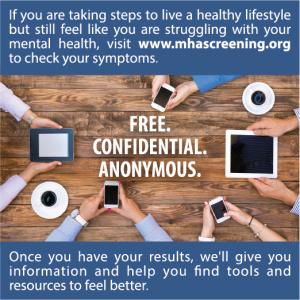Triage Nurses In Mental Health
May is Mental Health Month. It was started 70 years ago by Mental Health America to raise awareness about mental health conditions and the importance of good mental health for everyone. Telephone triage nurses have a more important role than ever before. Nearly one in five U.S. adults lives with a mental illness (44.7 million in 2016), which is why many adults with mental illnesses go untreated (60% according to a report from USA Today). 
Telephone triage nurses are often the first point of contact for those struggling with a mental illness and can help a patient recognize the need for intervention.
So, what can telephone triage nurses do to help?
- Provide accurate and timely triage.
Telephone triage nurses are often the first point of contact for a patient with mental health symptom and as a result, nurses should be patient, flexible, and have great communication and listening skills. The nurse must combine both clinical judgment and emotional connections to assess the patient’s situation to identify possible mental health issues. The telephone triage nurse’s role is to obtain the most accurate medical history and assessment to rule out medical symptoms that require immediate attention.
2. Remove any biases that can impact the triage process.
Good telephone triage nurses always remove any biases and stereotypes. Having preconceived notions and distinctive sets of thinking can lead to error in the treatment of patients.
3. Assess the environment.
The Emergency Nurses Association recommends treating patient agitation as if it’s “the chest pain of behavioral emergencies.” Key phrases such as “I understand” can help place a patient at ease and give them the space to talk to the nurse. Throughout the call, the nurse should assess the patient’s environment and resources available to determine the most appropriate care plan.
4. Manage the uncertainty.
Not all patients will be able to accurately describe their condition, history, medical conditions, or other pertinent information. It is left to the nurse to decipher this uncertainty.
- Assess the situation. How is the patient presenting? Is his or her speech coherent? Are they answering questions appropriately? Hallucinating? Delusional? Rambling?
- Address the whole patient! One common occurrence within mental health care is “diagnostic overshadowing.” This happens when the focus on a patient’s mental health diagnosis overshadows their physical health needs.
- Be an advocate. Triage nurses are the first to communicate with, provide support to, and manage patients with psychiatric or mental health issues. Acting as a patient’s initial advocate can be life-changing for that patient
Where can an individual go to find therapy?
Mental health is a critical part of overall health. If you’re feeling distressed, there is hope. If you are in crisis, please seek help immediately. Call 1-800-273-TALK (8255) to reach a 24-hour crisis center, text MHA to 741741, call 911, or go to the nearest emergency room.
For more information about the resources available to give to your patients, click the link below for additional resources by Mental Health America.
- Take a mental health screen, print the results out, and bring them to a doctor. Or discuss the results with a family member or close friend.
- Look up your local MHA affiliate.
- Find a therapist.
- Find a support group.
- Learn more about mental health conditions.
- Use a worksheet to help you learn how to communicate your thoughts and emotions.
Organizations such as TriageLogic provide outsourced telephone triage services to increase patient access to nurses event when the doctor office is closed. Nurses work directly with the doctor officer and can incorporate the doctors’ custom orders to ensure continuity of care.
Looking for a resource to give to your office nurses? Implementing tools like the MyTriageChecklist ensures the process for evaluating and documenting patient calls is appropriate. Visit our learning center for more videos and lessons for your nurses.
For more information about how triage nurses can help provide continuity of care and 24/7 access to medical questions, contact TriageLogic.






